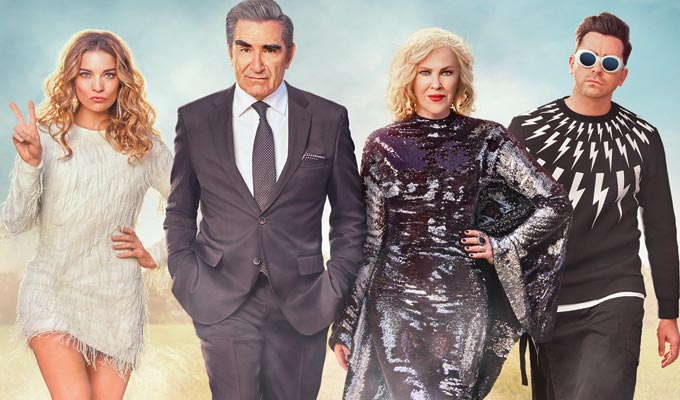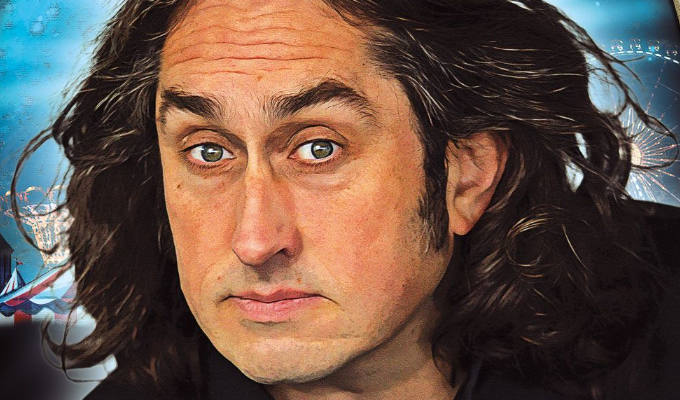
How streaming is changing TV comedy
Broadcasters seek niche shows, not blockbuster ratings
The boom in TV streaming services has fundamentally changed the sort of comedy that’s being made, an industry panel has revealed.
The likes of Netflix, Hulu and Amazon Prime mean commissioners in North America no longer obsesses about trying to programmes that appeal to the largest possible number of people, but can instead concentrate on finding quality programmes that audiences will seek out.
Streaming services also mean that hit shows have a much longer lifespan, and frees them from the constraints of having to hit a half-hour timeslot.
Speaking at Montreal’s Just For Laughs festival yesterday, Brendan Countee, from Showtime, said: ‘The competition for attention beyond television means you’re in a place where you have to do bold ambitious stuff.
‘Playing it safe and doing what you did last year means you’ll be passed by by the time it comes out.
‘It’s a win-win for audience and creators. The expectations for comedy are being recalibrated. You will get a breakout now and again but my bosses are more patient with the audience. If you’re a subscription service ratings don’t matter if it’s a good show and brand additive.’
Justin Stockman from Canada’s Bell Media agreed, saying: ‘You always used to be worried about too narrow a subject [for a show]. You never say that any more. Make it as specific as it can be.
‘Authenticity is the most overused word, but it’s the main thing. Make sure it’s a good story don’t worry about what another person in another place will think. We’re not looking for the American Idol sized audiences, instead all [the viewings] add up…’
The new landscape means that shows can grow in popularity slower and more organically than being overnight hits, the panel said at the festival’s ComedyPro strand.
NBC’s Jeff Meyerson said: ‘There’s always going to be heartbreak shows that don’t find their audience, but also the opposite. Take Schitt’s Creek [a Canadian comedy which has become a sleeper hit on Netflix and pictured above]. Nobody started talking about that until last year when it was in its fifth season.
‘The conversation has changed around the shows. When we take in digital viewing we take a long look. The Office and Friends are always popular on streaming – it’s evidence of 20 years later of how these shows are viewed a lot wider than would have been the case five years ago.’
Suzanna Makkos, head of comedy at the forthcoming HBOMax platform, gave the example of Arrested Development as a show that should thrive in the new environment, while its initial network launch was troubled.
She revealed that when she worked at Fox they screen-tested every one of the first six episodes, and while executives would hope most new shows would achieve 70 to 80 per cent approval ratings, Mitch Hurwitz’s show never went above 50.
‘People were furious,’ she revealed. ‘But one person would give it a ten [out of ten] and the rest of them would shout this man down. But the show was just for that guy. And now really smart, really specific shows can keep living.
‘Also, really great comedy cannot age in the way drama does. Friends, The Office, Seinfeld - they are living forever.’
Streaming also further blurred the lines between genres of comedy and drama, the panel suggested.
Ben Wasserman, from HBO, said his company simply called anything that was on for an hour a drama, and anything half-hour,m comedy. That meant Succession, the satirical show created by Peep Show’s Jesse Armstrong, was considered a drama while their anthology show Room 104 was a comedy, even though some episodes were scary and one was performed as an alternative dance in silence.
‘People respond to anything of quality,’ he said. ‘It doesn’t need to have a sitcom rhythm.’
However Myerson said that as a traditional network viewers had firmer expectations of what an NBC comedy would be, especially given its track record and especially on a Thursday where half-hour comedies traditionally air.
And Countee said: ‘It’s nice to be genre agnostic but great to just laugh. When I get home, sometimes I just want to… not think about something. Escapism is becoming relevant again.’
Makkos said the tradition of sitcoms running for half-an hour stemmed from rules limiting cigarette advertising in the early days of TV and was now obsolete.
However, she conceded that constraining comedy to tighter slots – typically 21mins 35seconds on a US network – could make it better. ‘In the comedy space some things need to be shorter,’ she said.
Wasserson pointed to Veep, saying that although producers could have run longer episodes ‘they kept it to 28min 30sec until the season finale’.
‘It forces you to make difficult decisions,’ he said of the time constraints. ‘ A lot of time when you a have to lose scenes or characters or jokes, the day after you don’t regret it. Time is not a friend of comedy.’
Finally the panel were asked what people might be surprised to learn about their jobs as network executives.
Makkos said: ‘There’s a perception that we’re hearing pitches just to say no. People don’t realise how desperate we are to hear something we love. We’re desperately wanting to say "yes".’
Published: 26 Jul 2019






